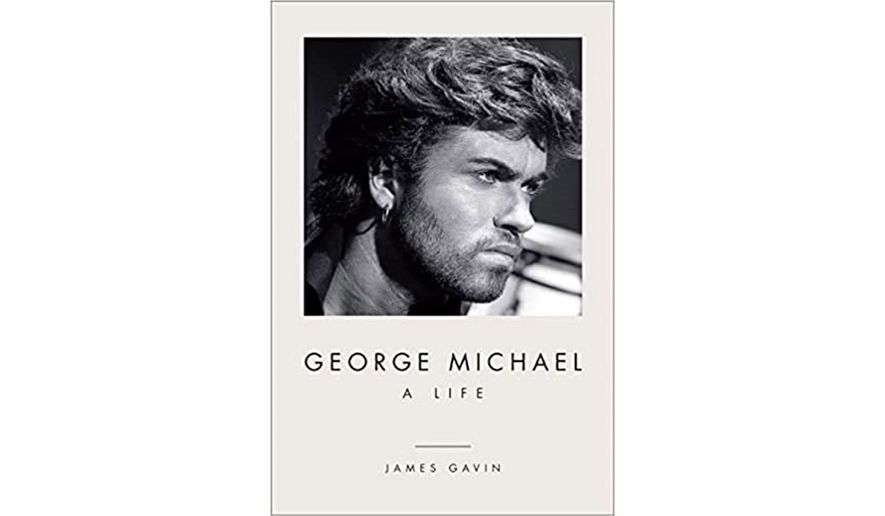OPINION:
“If you can’t find your empathy with your subject you shouldn’t be writing the book.”
That resonant line was spoken to me by James Gavin — whose new deep-dive biography of the late George Michael just hit the shelves to great acclaim. It doesn’t take more than a few minutes in conversation with Mr. Gavin to quickly realize he gets the late music icon.
Mr. Gavin grabs our hand and leads us clear-eyed through the waters of all things George Michael. These waters run murky, deep and often turbulent — much more so than perhaps even the most devoted fan would ever imagine.
As dark as the tale can get in parts, it leaves us not in distress but with a clarity that comes from having a much better understanding and appreciation of one of the greatest and most gifted singer-songwriters of our time.
Q: You’re a prolific writer-journalist on a great variety of subjects, but your book oeuvre thus far has been all about the jazz and cabaret. What drew you to George Michael as a subject?
“What attracted me so deeply to George is that I realized around the time of ‘Older’ that this guy was hurting a lot, that he was lost and that clues to that existed within that album and really in all the music he made thereafter. I saw this enormous confusion.”
“What was I going after in telling this story? An honest account of a beautiful talent who was in trouble and who couldn’t stand the pain of never liking what he saw in the mirror. How all the factors that drove him to for a while there become the biggest pop star in the world also drove him to tear it all down.”
Q: How did you start?
“It’s always intimidating to let the family or the heirs know that you, this stranger, is now going to write a book about their loved one because you will instantly be mistrusted, at least most of the time. The first year or so of this book was really hard because people weren’t responding to me or else they were saying no, for I suppose the aforementioned reason of mistrust, but also because George’s death was so recent that I think some were still raw from it, and not particularly inclined to talk.”
Q: The book was initially turned down by many publishers, why?
“All of this, I guess, tells you something about how George Michael was perceived, despite his death. I think that he was perceived as a kind of faded ’80s pop star who had fallen into disgrace. And he wasn’t perceived as eternally cool the way Bowie and Lou Reed and Leonard Cohen and Prince, all of whom died about approximately the same time.”
Q: The early buzz on the book has been focused almost entirely on the sex and drugs parts, how does that make you feel?
It was painful for me to see depictions of my book as being a trash heap because it was everything that I had fought against.
Q: Your portrayal of George’s childhood friend and other half of Wham!, Andrew Ridgeley, is quite honest. Did you talk with him?
“No to both questions. He hates giving interviews. When he was forced to give interviews because of the publication of his memoir, he seemed very uncomfortable, very tense and very unrevealing also. I think that Wham! was a lark for him. He wasn’t doing the heavy lifting, but on the other hand, if it weren’t for Andrew, there would’ve been no Wham! and no George, because Andrew’s style sense and his attitude at that time were templates for George, who was a pimply nerd.”
Q: George Michael has been underappreciated for his songwriting skills. You quote George Martin and Elton John on different occasions describing his songwriting on par with Paul McCartney’s.
“One of the interesting aspects of his childhood is the fact that he was such a voracious student of pop music of the past, especially Motown and R&B, though his focus was always pop. It was not rock and roll. George didn’t like rock that much. He liked pop because he understood that it cast the widest net, that it is designed in ingenious ways that appeal — that transcend age and language barriers. He wanted nothing less than for everybody to love him. And George listened to Supremes records and Smokey Robinson records, and he analyzed them and picked them apart in his brain. And he figured out the mechanics of writing songs like that. And he took them all in.”
Q: In researching the book, was there any one thing you came across that most surprised you?
“I was surprised and saddened by the depths of George’s self-hatred, really.”
“He set out to destroy himself as methodically as he had set out to create himself, yet I’m happy that ultimately he is not perceived as a tragic figure and that the happy aspects of George Michael and the good feelings that George Michael engendered have won out. They don’t always, you know.”
Q: Do you have a favorite George Michael song?
“Without question, my favorite George Michael track and song is ‘Spinning the Wheel’ on the ‘Older’ album. I think that track is a masterpiece. And a coming-out song that nobody paid attention to.”
• Christian Josi is a veteran political operative, writer and media consultant. He is the former executive director of the American Conservative Union and CPAC, and currently serves as managing director of C. Josi and Company, a Virginia Beach-based boutique media and public affairs consultancy.
• • •
George Michael: A Life (Abrams, June 28, 2022)
By James Gavin
528 pages
$32.50




Please read our comment policy before commenting.